
“TREATMENT OR CONTROL?” Mel Stonnill, research and operations coordinator at Seal Bay Conservation Park, calls out above a blustery onshore wind.
The question is directed to Dr Rachael Gray and her research team, who’ve been bustling around a sea lion pup, collecting samples and data in a finely tuned exercise that takes less than 10 minutes. The answer will mean either a chance at life or a possible death sentence for the little mammal.
It is the 145th pup caught and assessed like this at the Australian sea lion (Neophoca cinerea) colony on Kangaroo Island (KI), 170km from Adelaide, since breeding began here in May this year. A similar process will be repeated at least a dozen times today and through the coming weeks until 180 new pups have been caught, with each recaptured for monitoring up to three times during the season.
This pup’s a female that has been weighed at 11.6kg and measured at a length of 74cm, indicating she’s less than six weeks old, young enough to be included in this landmark trial for the species led by Rachael, a senior lecturer in veterinary pathology at the University of Sydney. Blood has been drawn from a vein in one of the pup’s front flippers and a fur sample clipped from her back, where she’s also been bleached with a distinctive code as a short-term way of recognising her from afar in the colony for the 3–4 months before she moults her soft lanugo fur.
For long-term identification a microchip has been inserted under the skin. If she survives, it will allow her to be followed through to adulthood, when she may produce her own pup at about the age of six years and perhaps several other offspring spaced more than 18 months apart, if she lives to her species’ upper age range.
This story is from the {{IssueName}} edition of {{MagazineName}}.
Start your 7-day Magzter GOLD free trial to access thousands of curated premium stories, and 9,000+ magazines and newspapers.
Already a subscriber ? Sign In
This story is from the {{IssueName}} edition of {{MagazineName}}.
Start your 7-day Magzter GOLD free trial to access thousands of curated premium stories, and 9,000+ magazines and newspapers.
Already a subscriber? Sign In
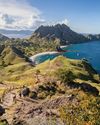
SULAWESI SENSATIONS
There are worlds within worlds and marvels untold waiting to be experienced on Indonesia's remote islands.
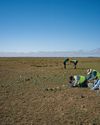
SEARCHING FOR AUSSIE DINOSAURS
Our understanding of where to find ancient life in Australia has been turned on its head by a new appreciation of the country's geology. Now the world is looking to our vast outback as the latest hotspot to locate fossils.
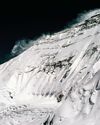
THE HARDEST NIGHT
The first Australian ascent of Mt Everest in 1984 is one of the great feats of mountaineering. Climbed by a small team semi-alpine style, with no bottled oxygen, via the Great (Norton) Couloir, it remains unrepeated 40 years later.
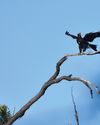
WEDGE-TAILED WONDER
The chance discovery of an eagle nest leads to an extended vigil observing normally hidden behaviours of one of nature's supreme winged marvels.
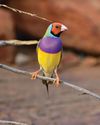
BURDENED BY BEAUTY
Northern Australia's Gouldian finch survives in huge numbers in cages around the world, but its wild population continues to struggle.
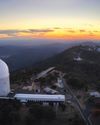
A TELESCOPE FOR A GOLDEN AGE
After a stellar 50 years as one of the country's major scientific assets, the AAT continues to play a major role in keeping Australian astronomy on the world stage.
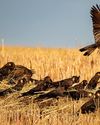
COCKY WHISPERING AT COOMALLO CREEK
This patch of remnant bush on the edge of the West Australian wheatbelt is a place loved by one of Australia's rarest bird species and the man who has studied the site for more than 50 years.

A PIONEERING PAIR
Louisa Atkinson and her mother, Charlotte, were among Australia's earliest authors, and pioneers in women's rights.
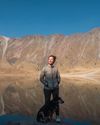
THE LONGEST WALK
Lucy Barnard is walking from Argentina to Alaska -the length of the Americas - on an extraordinary journey of endurance and adventure.
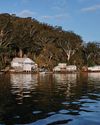
SECLUDED, BUT NOT ALONE
In an era of heightened social isolation, where many of us lead lonely lives, Dangar Island offers the chance to be part of a supportive, connected community.